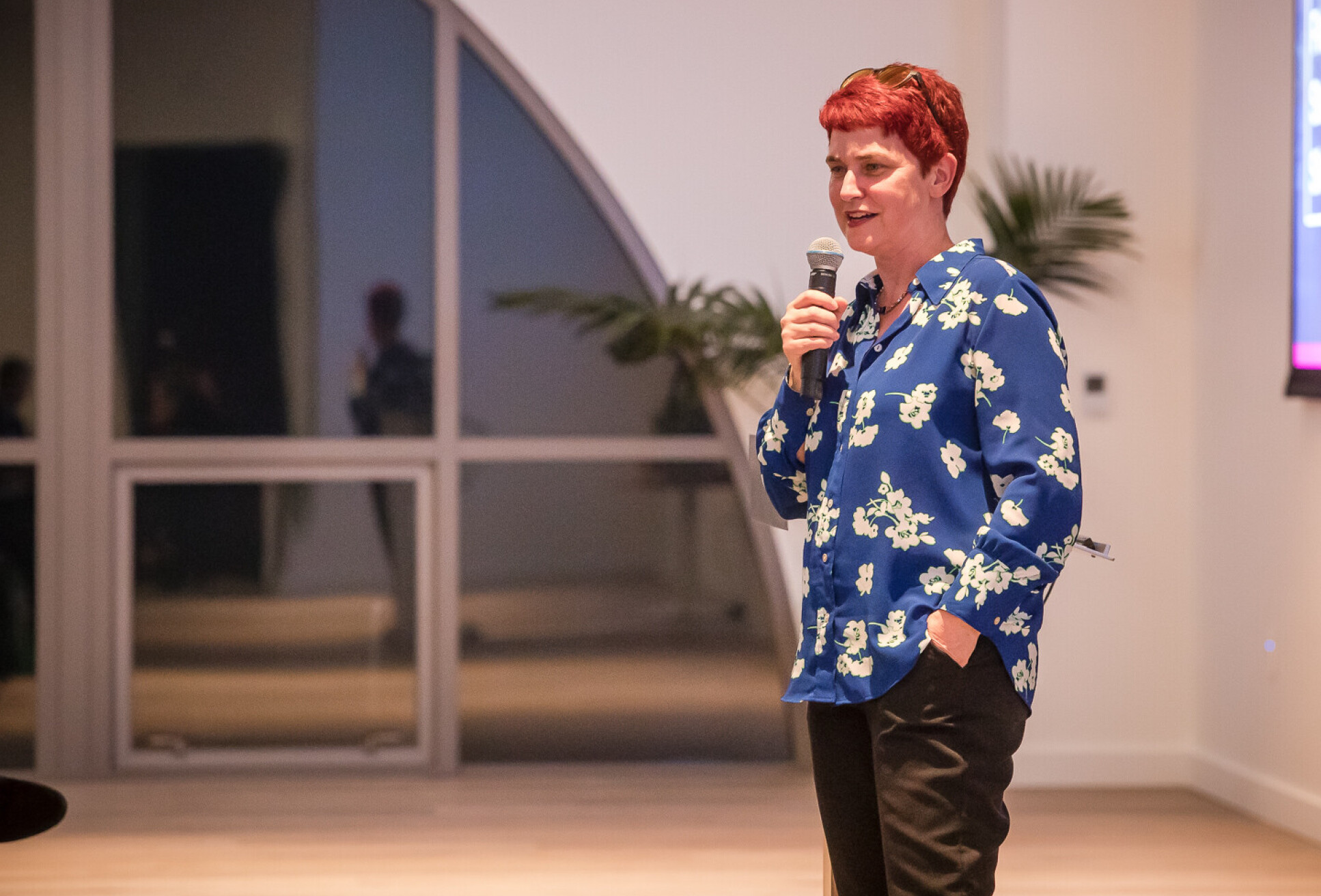[ad_1]
Imperial College London recently launched an online portal that will empower startup founders to reach global investor audiences.
The investment portal launch coincided with a visit by Imperial President Hugh Brady to San Francisco and the Bay Area –?home to some of the world’s most recognised and established tech companies.
The new Imperial Investment Portal was launched at a showcase event where five Imperial startups pitched to tech leaders and investors at San Francisco’s iconic SHACK15 venue.
The Imperial Investment Portal is an exciting new offering to connect our student, staff and alumni founders directly with new and existing investors from around the globe Professor Hugh Brady, President of Imperial College London
Imperial’s President, Professor Hugh Brady said: “Imperial has built a thriving entrepreneurial ecosystem to support our startup and spinout founders in developing innovative solutions that are helping to address global challenges. But for our ventures to grow, scale and reach their full potential they need vital early-stage investment from a wide range of sources.
“The Imperial Investment Portal is an exciting new offering to connect our student, staff and alumni founders directly with new and existing investors from around the globe – and I look forward to seeing the impact we can achieve together.”

Providing investors across the globe with access to a curated range of startup investment opportunities through a single user-friendly platform is just one example of Imperial’s commitment to being accessible and responsive to do business with.
The investment portal provides a natural extension to Imperial’s current investment and marketing capabilities, furthering the ability to connect diverse investors and startups in our ecosystem, boosting the visibility of Imperial-associated startups seeking investment and offering up-to-date information about them.
Support for budding startups
The new portal will ease investment for budding Imperial startups like those that pitched at the showcase event, where Imperial’s entrepreneurial graduate founders working at the cutting edge of AI and healthcare showcased their innovations to an audience of alumni, investors and tech leaders from the San Francisco tech ecosystem.
The startups included MakeSense: a machine vision navigation device for the blind and vision impaired, Vera.AI: AI hyper-personalised women’s health platform, OSSTEC: 3D Printed Bone Healing Platform Technology, Phare Labs: The next gen AI smoke alarm, and dotplot: At-home breast health monitoring solution.
Explaining the value of the new portal for startups like his, Dr Max Munford, CEO and Founder of one of the pitching startups, OSSTEC, and Imperial PhD graduate, said: “Fundraising is a crucial part of growing a venture but it can be difficult to connect with investors who are the right fit with your company.”
“Building and closing OSSTEC’s oversubscribed £1.2M seed round could have been much more efficient using the Imperial Investment Portal. More importantly, faster access to early angels means the team can focus on building the company.”
Fellow founder, Claire Trant, CEO and co-founder of Untap Health and Imperial PhD graduate, said: “We were lucky enough to be part of the Imperial ecosystem which was a huge help in our 2022 fundraise. But finding relevant and interested early-stage investors was a slow process. Having a portal where you can quickly see many investors and their interests would be a game changer.”
Building ties across the Atlantic
Imperial’s leadership and delegation of innovative startups attended the GBx Gala to network with fellow entrepreneurs, tech leaders and venture capitalists. The UK’s Chancellor of the Exchequer gave the event’s keynote speech, as well as hosting a reception which was attended by Imperial’s President, Professor Hugh Brady, and Vice-Provost (Research and Enterprise), Professor Mary Ryan.
The Chancellor was in the area to meet with technology firms on the US West Coast as part of efforts to make Britain the next Silicon Valley and to encourage investment in the UK tech sector. Imperial’s newest campus in one of the most dynamic and rapidly changing parts of London, White City, echoes this ambition, and is fuelling an entrepreneurial ecosystem that mirrors the early days of Silicon Valley.
During the trip, technology entrepreneur and Imperial alumnus Wendy Tan White welcomed the Imperial delegation to Intrinsic, a pioneering robotics software company, part of the Alphabet Group, where she is CEO.
The delegation also discussed collaborative and student training opportunities at cutting edge electric vehicle company Lucid Motors at invitation of CEO and Imperial alumnus Peter Rawlinson.
More than just a shop window
Led by Imperial’s in-house Investment Services team, the Imperial Investment Portal is a web-based platform which allows members of Imperial’s Investor Network access real-time and relevant information on investment opportunities.
Startups are quality-assured by the Imperial team for investor readiness and their profiles are completed and updated by the founders – including links to video pitches, intellectual property and investment raised to date.
Members of Imperial’s Investment Network will get notified by email when companies move to ‘actively fundraising’ and investors can filter the opportunities by sector and contact founders directly through the portal – all free of charge to founders and investors.

Dr James Groves, Head of Investment Services at Imperial Enterprise, said: “More than just a shop window, the portal will dynamically alert members of the Investor community to new opportunities. If you are a registered member of our network, you will hear about new companies opening their investment rounds regardless of where you are on the planet.
“We know many investors find it challenging to secure high quality deal flow from UK Universities, with access to founders and opportunities often restricted to personal referrals. Rather than replacing the human interaction which is so key in early stage investing, we see the portal as a means to augment and accelerate the Imperial’s founders engage with the investor community.”
Claire Trant, CEO and co-founder of Untap Health and Imperial PhD graduate, said: “We were lucky enough to be part of the Imperial ecosystem which was a huge help in our 2022 fundraise. But finding relevant and interested early-stage investors was a slow process. Having a portal where multiple investors can quickly review fundraising companies would be a game changer.”
Untapped potential
The innovation ecosystem at Imperial is now extensive and well-developed – ranging from the Enterprise Lab co-working space, where students can experiment and test business ideas, to Scale Space, which takes companies to the next level in the heart of the thriving White City Innovation District.
Imperial’s startups are already having a tangible impact, delivering solutions to global challenges. For example, Dotplot is a healthtech company aiming to increase early detection of breast cancer – the second most prevalent cancer in the world with 2.3 million cases per year causing 685,000 deaths globally. With early detection, survival rates increase up to 93%. Dotplot offers a handheld device that pairs with a mobile app to help women perform breast checks every month.
Meanwhile, Makesense is developing a cost-effective, hand-held ‘sensory substitution device’ to help people with vision impairment navigate completely independently. Users hold the device in front of them like a torch, while advanced AI-based computer vision and localisation technology provides haptic cues to direct them. It could provide a cost-effective alternative to guide dogs, which cost £55,000 to train and are only offered to 1% of people with vision impairment.
Photography: Orange Photography
[ad_2]
Source link
